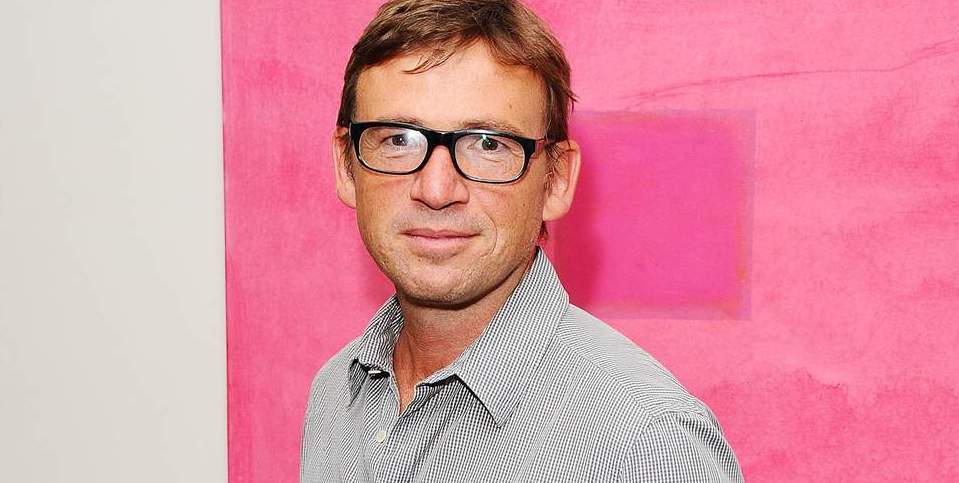Interview with David Nicholls

Arts Editor Millie Morris interviews bestselling author David Nicholls, who has made his name with books such as Starter for Ten,One Day, and his latest novel Us; he also penned the screenplay for the newly released film adaptation of Thomas Hardy's Far from the Madding Crowd
As a five million copy selling author, David Nicholls is gratifyingly humble. At a Q&A hosted by the Bath Literature Festival in early March, he rises to each question with humour and consideration. Much like the way his characters are rendered with emotional lucidity, relatable and sympathetic on every level, Nicholls is eloquent yet unpretentious. Perhaps this is why his work is often seen to toe the line between literary and popular.
Two months later, I interview Nicholls on the phone. As an English and Drama graduate from Bristol himself, I took the opportunity to ask him about his experiences at Bristol, his writing for both page and screen and his latest novel, Us, which has just been released in paperback.
You often use opinionated, politically-conscious and strong women in your texts -- was there anyone in your life who inspired this?
I think there were a lot, especially at university in 1985. I think it was for me quite challenging in a brilliant way, it was very argumentative. You really had to justify your position and there was a lot of debate which was quite unnerving and challenging, but I loved that. It was a very political and divisive time, and politics seemed very extreme. I think that was healthy really. It was interesting watching my friend Matthew Warchus -- a contemporary of mine who was in the same year -- [directing] Pride and thinking back to all of those meetings, all of that stuff which we all lived through, so it was definitely a part of it.
We don't reach a point in our lives and think 'Well I'm glad I reached some kind of resolution there'
But there's no one in particular. Emma [One Day] or Connie [Us] in the books ... they're not really a portrait of anyone. I've always dodged that -- partly because I'm scared of being found out, partly because I don't know how interesting it is. It's much, much, much, much more demanding to shape characters and create characters rather than mimic. But definitely my time at university was an event in my life, and it's informed everything I've done, even stuff that isn't set against that background.
Both Starter for Ten, and particularly One Day, have bittersweet endings. Do you think that literature ought to mimic reality?
I suppose I'd never thought about that. I think certainly I'm wary of stuff that's corny, I'm wary of sentimentality and I mean, life doesn't really have endings -- thank God! We don't reach a point in our lives and think 'Well I'm glad I reached some kind of resolution there'. We don't have first, second and third acts, we don't ever feel like things have come to a happy ending. There is always an extent of doubt and anxiety about the future and things changing. Particularly the last two books are about how situations are never really fixed -- both books have a kind of dot dot dot, to be continued, at the end. In that sense I think they're less sentimental and more realistic.
On the other hand, I do like big emotions and catharsis and things getting worked out, and people learning lessons and all of that stuff, which doesn't have to be real life. So I'm caught between the two. I think when you write something you impose patterns and shapes on life that don't really exist, and that's fine. I think as long as you don't become predictable or clichéd or sentimental. I love that experience of leaving the cinema having seen a film with a happy ending and feeling that things have been tied up. But that never happens in life, and I think it's good to have a little doubt, a little niggle at the end of a story.
You've adapted both Tess of the d'Urbervilles and Far from the Madding Crowd by Thomas Hardy for TV and film respectively. Was this a daunting job?
It was with Far from the Madding Crowd, more so than with Tess. Tess is like a tragedy, it's very beautifully worked out -- we had four hours to tell it in, which is plenty of time. In fact, I think if you had any longer you wouldn't be able to use it well. It was daunting in the sense that it's a wonderful book and you need to do it justice, but technically it wasn't so daunting because it has a very classic structure. For the most part you're with Tess; she has a very clearly defined journey; it fell very neatly into four acts and it was a book I knew very well and really loved.
There's more stuff revolving around the sheep than you would necessarily choose if you were writing an original screenplay
So Tess was daunting but not as daunting as Madding Crowd, which is kind of a crazy book in lots of ways. A wonderful, but early book -- with all the problems of early books, there's a sense that [Hardy]'s finding his feet and there's stuff in there that's extremely overblown and excessive. There's more stuff revolving around the sheep than you would necessarily choose if you were writing an original screenplay [laughs].
There's a certain amount of repetition in the story -- there are two moments where the future of a farmer depends on what happens to the sheep, and there are two moments where the future of a farm depends on what happens with the weather. You can't leave any of those moments out but you also have to shape them and make them distinctive. It's a multi-stranded book, with all kinds of little sub-plots, and there's no single viewpoint. Movies tend to favour stories which have a single fixed viewpoint, and Madding Crowd doesn't have that. So it's much, much harder.
With Madding Crowd, people really loved the previous film and they really loved the book, and that made it a bit daunting. We had to cut a huge amount both before shooting and after, and I don't feel that [was] deliberate because I consider myself to be the guardian of the material. And then people come along and say 'This movie's four hours long', or 'we can't afford to shoot that scene', or 'the schedule won't allow us to do that story properly', and that's quite tough. But I loved it as well, I love those books and I wouldn't take on a book that I didn't want to wallow in, so it was a pleasure too.
Would you say that your acting experience helped you with your writing? Do you feel you empathise more with characters because of this?
My acting career was the weirdest thing, because I did it and I earned a living for about eight years, but I didn't really do much performing in the sense that no one was really meant to look at me. I was often just standing in the background and keeping quiet to get better as an actor, and I didn't really have any ability as an actor. I think what it did help me with was that I learnt by being exposed to vast amounts of writing, and reading a huge number of plays and watching a lot of rehearsals and seeing how things worked, seeing how actors brought things to life and noting when actors are having a good time or having a bad night. Technically, I learnt a lot, but I was a terrible actor, I didn't really know how to put my acting training into action.
Creating a character on the page isn't that different from creating a character on the stage
Creating a character on the page isn't that different from creating a character on the stage. You still ask all those questions: what are their parents like, what did they have for breakfast, what kind of music do I listen to, what do I wear, how do I move. I think I did learn a certain amount, but not from actually performing!
How does your new novel, Us, compare to your previous books?
I think it's my favourite so far, if I'm allowed to say that without being pompous. It's a bit tougher and it deals with family, which is something that I've always dodged in previous books. There aren't really any parents in previous books, they are always off-screen or off the page. In this book I thought it's time -- when you're a parent yourself you have to deal with this whole difficult business of family. I think [Us] is funnier, but also sadder -- it's quite a melancholy book because it's about fear of being alone and fear of not being loved, which is quite a sad subject. Sometimes I think it's like a jolly road movie, an adventure and a romp, quite big and broad and funny, and then it strikes me that it's an incredibly bleak book about loneliness and despair. If I had to sum it up I'd say that it's a bit more grown up, and the writing is probably a bit better as well -- structurally it's a bit smarter.
How similar was your student experience at Bristol to Brian Jackson's in Starter for Ten (although the book doesn't specify he goes to Bristol)?
No, it doesn't specify, but it is! I suppose I left it out because I wanted everyone to identify with it, I didn't want it to become a kind of documentary. But it was pretty similar, except I couldn't really have cared less about being on University Challenge -- it would have been slightly sneered at. Certainly the kind of puppy-ish enthusiasm is absolutely how it was, and certainly that feeling of being challenged and provoked was there, which I loved. I really, really was pleased to be told that my ideas were nonsense! That was extremely helpful.
People were very concerned about their background when they got to university, you almost had to wear a badge saying what your parents did and what kind of school you went to
I think the intensity of friendship, and the crushes and the passion of it all, that was absolutely how it was. Probably, if anything, it was more political than the book -- it was a very, very passionate political time and that took up a lot of people's time and energy. There's less of that in the novel than there was in real life. But I think it's a pretty accurate portrait of how it was. People were very concerned about their background when they got to university, you almost had to wear a badge saying what your parents did and what kind of school you went to; it was very, very class aware. I don't know if that's still the case, but class and background were a constant, constant source of discussion -- people being defined by their education and their parents. I don't know if that still happens now. What is absolutely accurate in the book is how much I loved [university], I really did, I was very, very, very happy ... not always happy, but very excited and grateful.
'Us' by David Nicholls is now available in paperback
Featured Image: The Independent Bath Literary Festival, David Nicholls
What did you think of this interview? Which is your favourite book or adaptation by Nicholls? Let us know in the comments below or tweet us
